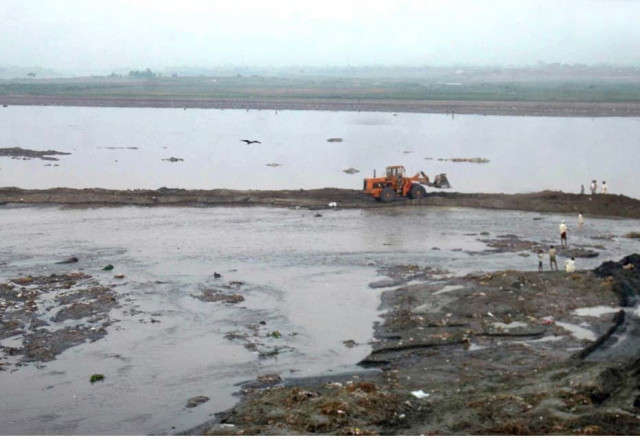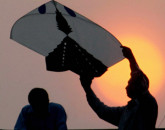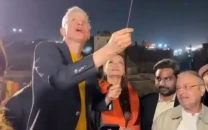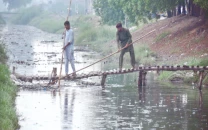Ravi commission: Artificial wetland could help clean up river
Commission tasked with restoring river to meet again after Eid.

The River Ravi Commission, the body tasked with finding a way to clean up the river, is to explore the possibility of building an artificial wetland for the disposal of sewage.
On Monday, in its third meeting since it was set up by the Lahore High Court’s green bench in April, the commission formed a six-member sub-committee to look into the feasibility of such a project and to study functional wastewater disposal facilities elsewhere in the Punjab.
The six committee members will visit a constructed wetland being used for wastewater disposal in Islamabad on Thursday. They will also tour a sewage treatment plant set up by the Water and Sanitation Agency (Wasa) in Faisalabad.
The River Ravi Commission will meet again in the week after Eid and evaluate the various options it has looked at for the restoration of the natural ecology of the river. It will then present its findings to the LHC’s green bench in around a month.
The sub-committee includes officials from the Environmental Protection Department, Wasa, the city district government, the Worldwide Fund for Nature-Pakistan (WWF-Pakistan) and two technical members.
Heavy metals
Engineer Muhammad Aslam of the National Agriculture Research Centre (NARC) briefed the commission members on how a constructed wetland can dispose of wastewater. EPD Secretary Saeed Iqbal Wahla said that he had proposed that the commission conduct an experiment by building a small artificial wetland with flow of 1-10 cusecs near one of the nine spots where sewage is pumped into the Ravi.
Wahla said a constructed wetland would be a cheaper option than building a treatment plant costing many millions of dollars. He said that even the best waste treatment plant couldn’t rid wastewater of heavy metals of all types. “You can dispose of partially treated wastewater in a lined wetland as it does not allow the waste to permeate into the groundwater,” he said.
Dr Ejaz Ahmad of the WWF-Pakistan, a member of the commission, said that the WWF-Pakistan had recruited additional help to prepare a preliminary report on the types and sources of pollution in the Ravi. Wahla said that the EPD had recently issued hundreds of notices to industries across Punjab directing them to install wastewater treatment facilities.
Dr Kausar Abdullah Malik, who chaired the meeting, said the aim of the body was to protect the river from further degradation, said an EPD press release. It said the Ravi was the most polluted river in Pakistan, contributing 48 per cent of the overall discharge of effluent into the Indus. About 42 fish species have disappeared as a result.
EPD Director General Maqsood Ahmed Lak, Wasa Managing Director Muhammad Abdullah, Wasa Procurement Director Shakeel Ahmed Kashmiri, Punjab Advocate General Ashtar Ausaf Ali, WWF-Pakistan Director General Ali Habib, WWF-Pakistan Managing Director Ali Husnain Syed, Himalayan Wildlife Foundation Director Vaqar Zakaria and Kamil Khan Mumtaz of the Lahore Conservation Society also attended the meeting.
Published in The Express Tribune, July 31st, 2012.



















COMMENTS
Comments are moderated and generally will be posted if they are on-topic and not abusive.
For more information, please see our Comments FAQ